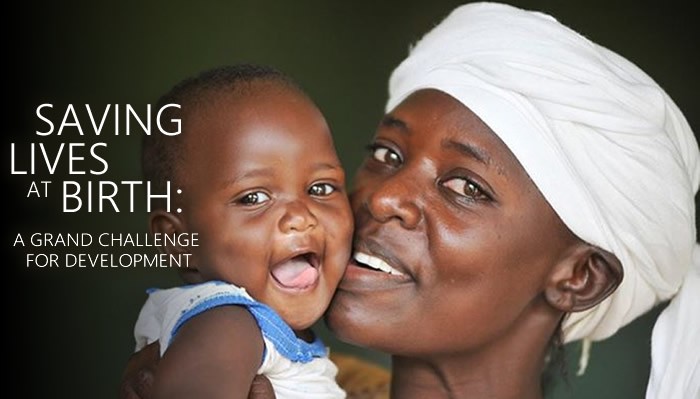- What We Do
- Agriculture and Food Security
- Democracy, Human Rights and Governance
- Economic Growth and Trade
- Education
- Environment and Global Climate Change
- Gender Equality and Women's Empowerment
- Global Health
- Humanitarian Assistance
- Transformation at USAID
- Water and Sanitation
- Working in Crises and Conflict
- U.S. Global Development Lab
Speeches Shim

The span of time from the onset of labor through 48 hours after birth is a high-risk period of heightened vulnerability for mothers and babies, accounting for 48 percent of maternal deaths, 54 percent of neonatal deaths, and 25 percent of overall child deaths annually. As part of the U.S. Agency of International Development's (USAID's) efforts to end preventable child and maternal deaths, Saving Lives at Birth calls on the brightest minds across the globe to develop groundbreaking prevention and treatment approaches for pregnant mothers and newborns during the vulnerable hours surrounding birth.
Saving Lives at Birth seeks innovative ideas to leapfrog conventional approaches in three main domains: (1) technology; (2) service delivery; and (3) "demand side" innovation that empowers pregnant women and their families to practice healthy behaviors and be aware of and access health care during pregnancy, childbirth, and the early postnatal period, especially the first 2 days after birth.
In its 8 rounds, Saving Lives at Birth has funded 120 innovative tools and approaches benefiting 2 million women and children and saving more than 10,000 lives worldwide, with the potential to save 150K lives by 2030.
Saving Lives at Birth invests in a portfolio of projects through three types of funding and provides complementary acceleration support to introduce and scale up the most promising innovations.
- Seed funds support the development and validation of ideas capable of having an impact on health outcomes for pregnant women and their babies in low-resource settings.
- Validation funds help establish proof-of-concept through the introduction and validation of the effectiveness of innovations.
- Transition-to-scale funds develop, refine, and rigorously test the impact of integrated solutions that have previously measured promising health outcomes in a controlled or limited setting and have the potential to credibly scale to improve the lives of millions of pregnant women and newborns in multiple countries.
Saving Lives at Birth is a global partnership between USAID, the Government of Norway, the Bill & Melinda Gates Foundation, Grand Challenges Canada, the U.K. Department for International Development (DFID), and the Korea International Cooperation Agency (KOICA). The partnership chose its first awardees in 2011 and has issued a call for applications and chosen new award recipients in each subsequent year. The partnership was renewed in October 2014 with an additional $50 million commitment for another 5 years.
Visit the Saving Lives at Birth website for more information.

Comment
Make a general inquiry or suggest an improvement.